Did you know that along with the Compound Annual Growth Rate (CAGR) of ERP for Pharmaceutical Industry of 12.58%, the need for pharmaceutical software that complies with local regulations is increasing?
This compliance with local Philippine regulations is important so that everything related to production, distribution, and reporting can be fully and easily explained. Therefore, choosing an ERP for Pharmaceutical Industry vendor in the Philippines is essential.
Huwag kang mag-alala tungkol dito. This article will provide you with 9 best ERP for the pharmaceutical industry in the Philippines. With this, you will continuously know which vendor can meet your business needs. Let’s take a look at the details below.
Key Takeaways
|
Table of Contents

What is ERP for the Pharmaceutical Industry?
ERP for the pharmaceutical industry is a solution that includes various tools and applications that help manage and optimize critical processes like drug production, quality control, regulatory compliance, and supply chain management.
Typically, this software comes with modules for inventory management, batch tracking, formulation management, and electronic batch records. These tools are designed to simplify inventory monitoring, reduce errors, and optimize the tracking of pharmaceutical products, ensuring that stock levels are accurate and up to date.
In addition to inventory-related features, the system often integrates quality assurance, document control, and compliance management modules. These functionalities enhance operational efficiency and ensure adherence to regulatory standards, product safety, and overall effectiveness, making the pharmacy inventory system a critical tool for streamlined operations.
Why Do Pharmaceutical Companies Need ERP Software?
Pharmaceutical companies need ERP software to:
- Ensure compliance: Helps meet regulations like FDA standards by managing documentation and processes.
- Maintain quality: Monitors production in real-time to ensure products meet safety standards, reducing recall risks.
- Manage inventory: Track raw materials, finished goods, and expiration dates to reduce waste and maintain optimal stock levels.
- Track batches: Provides full traceability from production to distribution for easy recalls or audits.
- Control costs: Offers real-time data on expenses to manage costs and improve profitability.
Benefits of ERP for Pharmaceutical Industry
ERP software is crucial for the pharmaceutical industry. It helps streamline operations, meet strict regulatory standards, and other benefits, such as:
- Ensures compliance: Helps meet strict industry regulations for product safety.
- Optimizes inventory: Manages stock levels to reduce costs and prevent shortages.
- Boosts quality: Automates quality checks to maintain high standards.
- Integrates with labs: Links with LIMS for accurate data and fewer manual entries.
- Tracks batches: Monitors each batch from production to delivery for better safety and compliance.
After learning how ERP for the pharmaceutical industry works and the benefits it brings, you might wonder how much this incredible system costs. Click this banner to explore a flexible ERP pricing scheme tailored for the pharmaceutical industry.

The Best ERP for Pharmaceutical Industry in the Philippines (2025)
Choosing the best ERP for the pharmaceutical industry is crucial for managing the complexities of the company. Below is a list of some of the best ERP software solutions for pharmaceutical manufacturing businesses in the Philippines.
1. HashMicro ERP for Pharmaceutical Industry
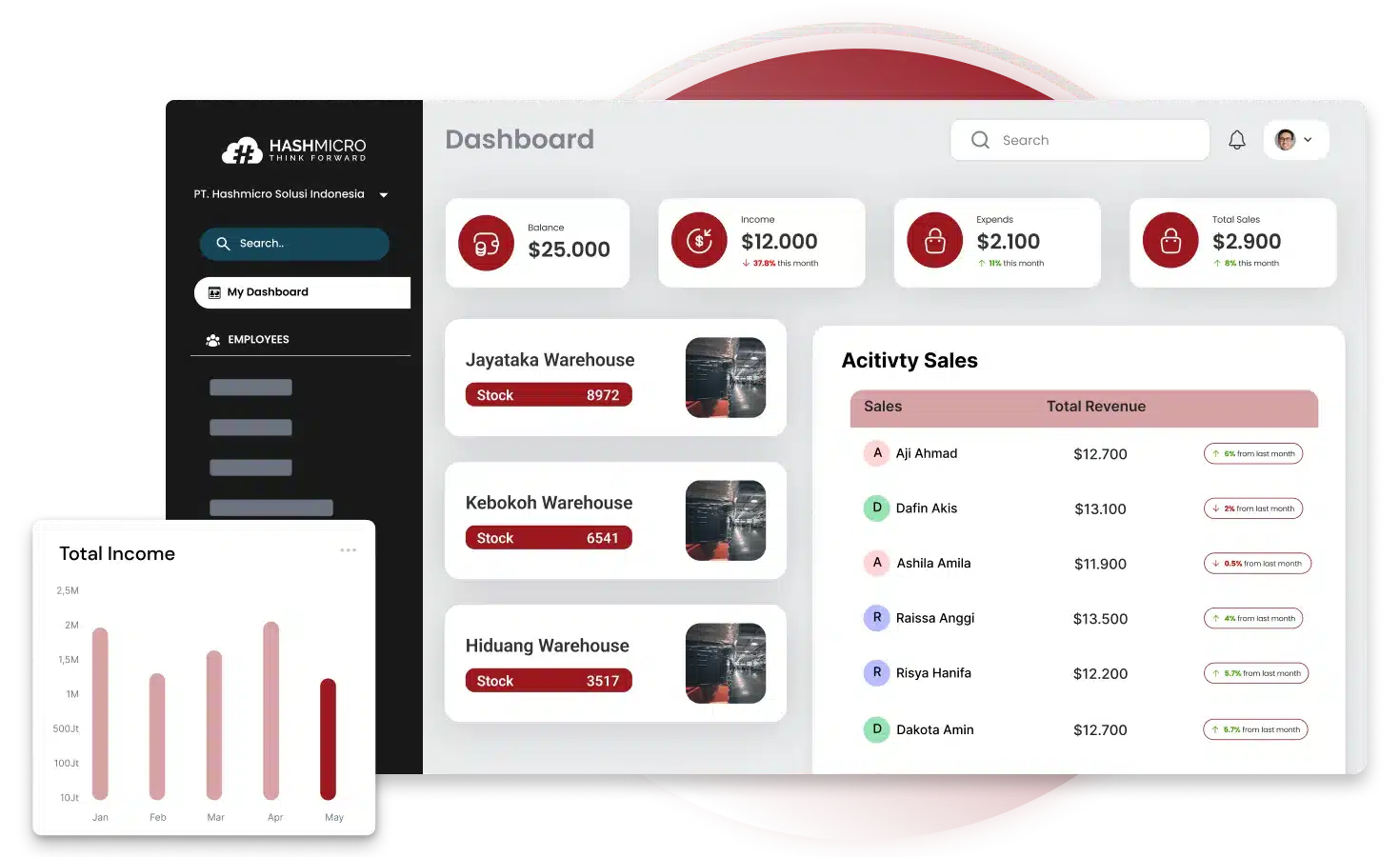 Why we choose: Chosen for its customizable and user-friendly ERP solutions designed specifically to meet the complex needs of the pharmaceutical industry.
Why we choose: Chosen for its customizable and user-friendly ERP solutions designed specifically to meet the complex needs of the pharmaceutical industry.
For businesses looking for a flexible, industry-focused solution, HashMicro ERP is an excellent choice. This cloud-based software enhances efficiency across multiple sectors, serving over 1,750 clients. HashMicro offers a free demo, extensive customization options, and a variety of powerful tools, such as:
- Built-in BI (Business Intelligence): Analyzes data from multiple perspectives to provide deeper insights.
- Simple bookkeeping: Automates transaction recording for clear and accurate financial reports.
- Production cost control: Offers comprehensive cost management, covering purchasing, production outcomes, and handling defective product components.
- Multi-company management: Enables centralized management of various companies with different structures on a single ERP platform.
- Mobile apps: Accessible through iOS and Google Play Store, allowing easy access via mobile devices.
- Sheet management: Streamlines spreadsheet management, automation, and analysis while ensuring data security and seamless module integration.
- Access-level control: Restricts employee access to specific data and functions based on their roles and responsibilities.
| Pros | Cons |
| User-friendly interface | Limited customization for niche needs |
| Strong customer support | Requires in-depth training for new users |
| Seamless integration with other software | Higher initial implementation costs |
| Regular updates and enhancements | It may not suit small-scale operations |
2. NetSuite
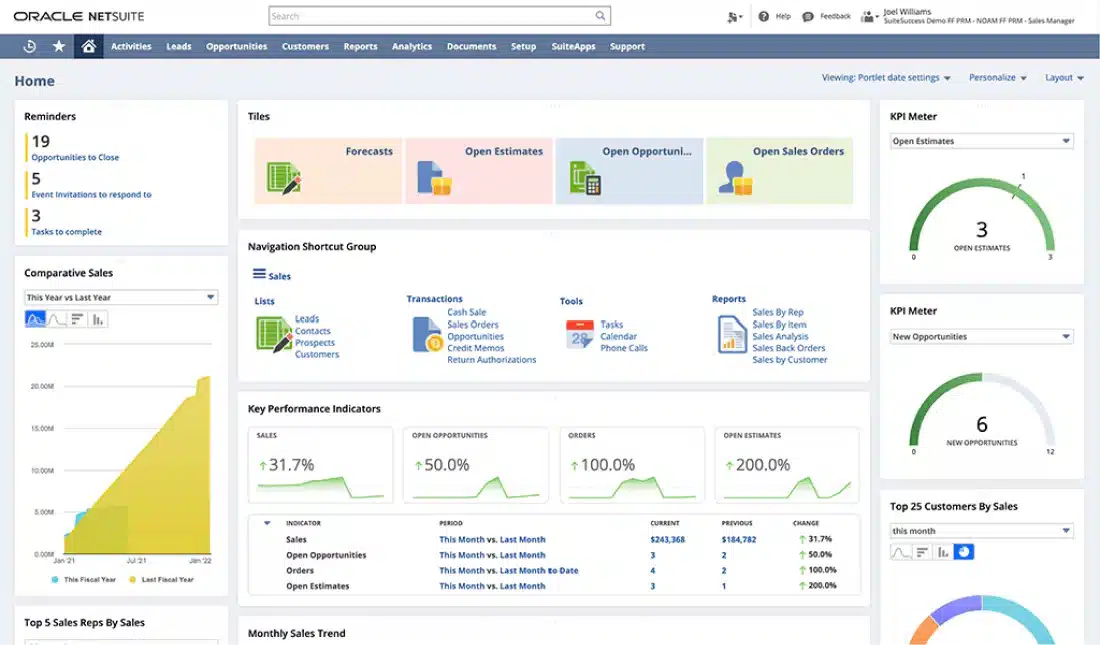 Why we choose: Selected for its scalable cloud-based platform, offering comprehensive tools for real-time data management and regulatory compliance.
Why we choose: Selected for its scalable cloud-based platform, offering comprehensive tools for real-time data management and regulatory compliance.
NetSuite offers a complete ERP solution with features like inventory management, supply chain optimization, and regulatory compliance. It helps companies streamline operations and improve efficiency by providing real-time visibility into inventory.
Key features:
- Real-time financial management
- Advanced supply chain planning
- Regulatory compliance tools
- Integrated CRM and inventory management
| Pros | Cons |
| Scalable for growing businesses | The steep learning curve for beginners |
| Excellent customer support | Higher monthly subscription fees |
| Strong data analytics capabilities | Customization can be complex |
| Global reach and support | It may require third-party integrations |
3. Misys
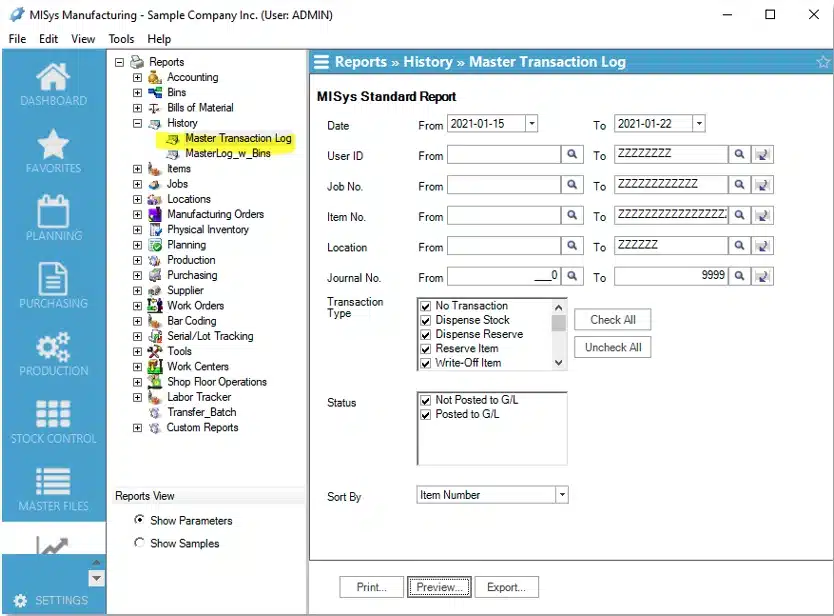 Why we choose: Preferred for its robust, industry-focused functionalities that streamline production processes and enhance compliance support.
Why we choose: Preferred for its robust, industry-focused functionalities that streamline production processes and enhance compliance support.
Misys provides specialized ERP software tailored to the pharmaceutical industry’s specific needs. It includes features such as batch tracking, quality control, and compliance management, supporting companies in ensuring product safety and streamlining operations.
Key features:
- Batch and lot traceability
- Real-time inventory management
- Regulatory compliance support
- Production scheduling
| Pros | Cons |
| Comprehensive functionality | Requires extensive training |
| Strong compliance tools | Limited out-of-the-box integrations |
| Customizable workflows | High implementation costs |
| Robust reporting features | Slower system updates |
4. R4 Enterprise
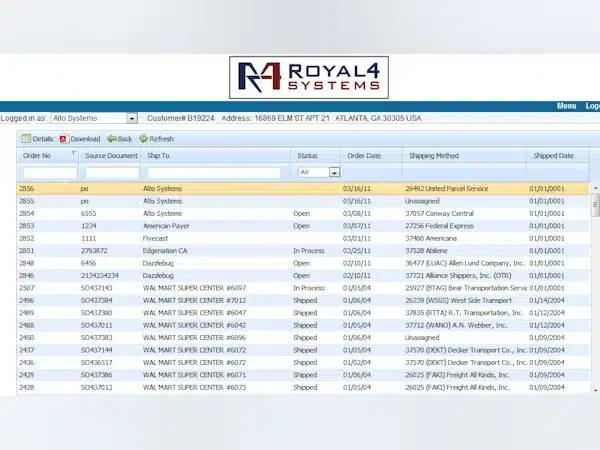
Why we choose: Ideal for its focus on regulatory compliance and real-time monitoring, making it reliable for highly regulated industries like pharmaceuticals.
R4 Enterprise’s ERP software offers comprehensive batch tracking and quality control modules, ensuring product quality and adherence to industry standards. Its rigorous testing, inspection, and documentation tools make it a valuable asset for pharmaceutical manufacturers.
Key features:
- Compliance with FDA and GMP regulations
- Production and inventory tracking
- Quality control and assurance
- Real-time data insights
| Pros | Cons |
| Strong regulatory compliance | The interface can be overwhelming for new users |
| Real-time data monitoring | Integration with other systems can be complex |
| Reliable customer support | Customization may require additional costs |
| Offers mobile access | Limited scalability for larger enterprises |
5. Datacor ERP
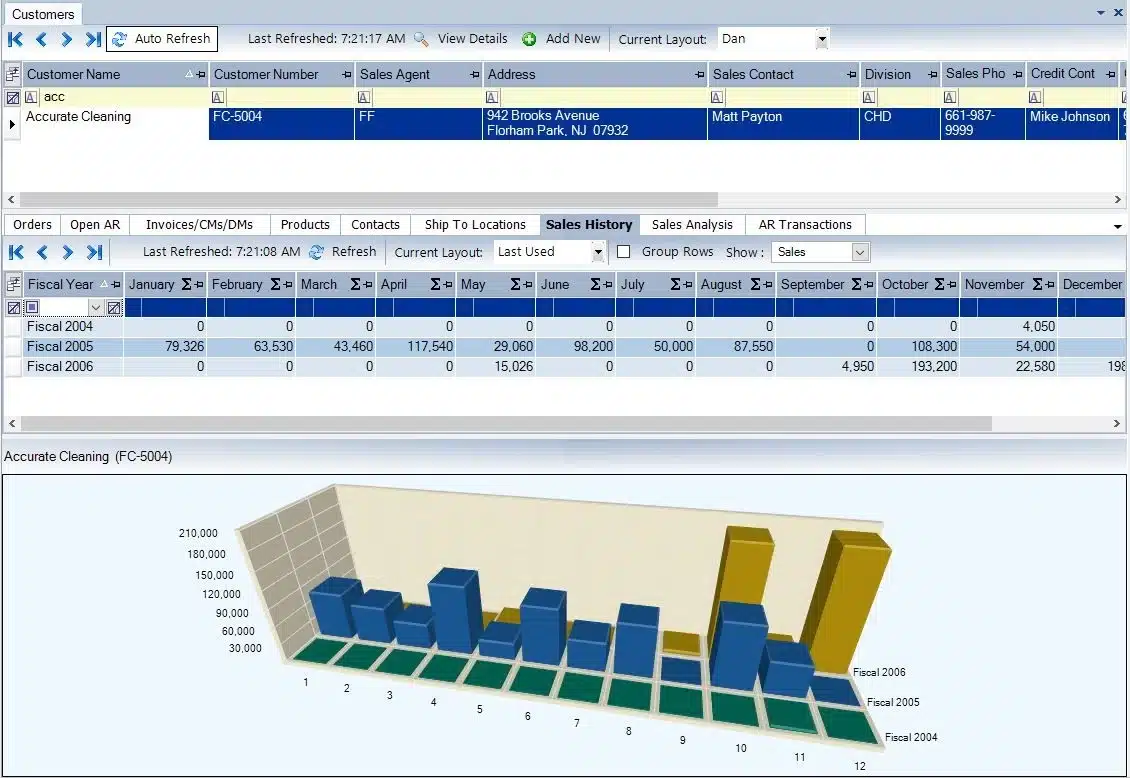 Why we choose: Chosen for its intuitive interface and strong data security, tailored to ensure seamless batch tracking and quality management.
Why we choose: Chosen for its intuitive interface and strong data security, tailored to ensure seamless batch tracking and quality management.
Datacor’s ERP solution benefits pharmaceutical businesses by improving operational efficiency through automation and streamlined processes. It offers real-time visibility into production, inventory, and financial data, helping companies to make informed decisions and optimize resources.
Key features:
- Comprehensive batch tracking
- Integrated quality management
- Production planning and scheduling
- Regulatory compliance modules
| Pros | Cons |
| Intuitive user interface | Limited features for larger companies |
| Excellent data security | Steeper learning curve for new users |
| Customizable dashboards | Requires periodic manual updates |
| Strong support for regulatory needs | Limited global support options |
6. Prims ERP for Pharmaceutical Industry
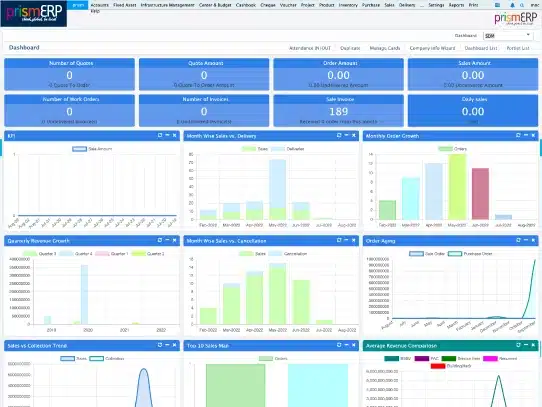
Why we choose: Selected for its simplicity and ease of implementation, making it a great choice for medium-sized pharmaceutical companies seeking quick ERP adoption.
PRIMS provides an ERP system equipped with advanced batch management features. These features enable pharmaceutical companies to track each batch’s entire lifecycle, which is critical for the industry. This feature ensures product integrity and regulatory compliance.
Key features:
- Production and batch management
- Quality control automation
- Inventory management
- Compliance and reporting tools
| Pros | Cons |
| Simple, easy-to-use interface | Limited integration options |
| Quick setup and implementation | Basic reporting capabilities |
| Affordable for mid-sized companies | May lack advanced analytics tools |
| Good customer support | Limited scalability as business grows |
7. Syspro
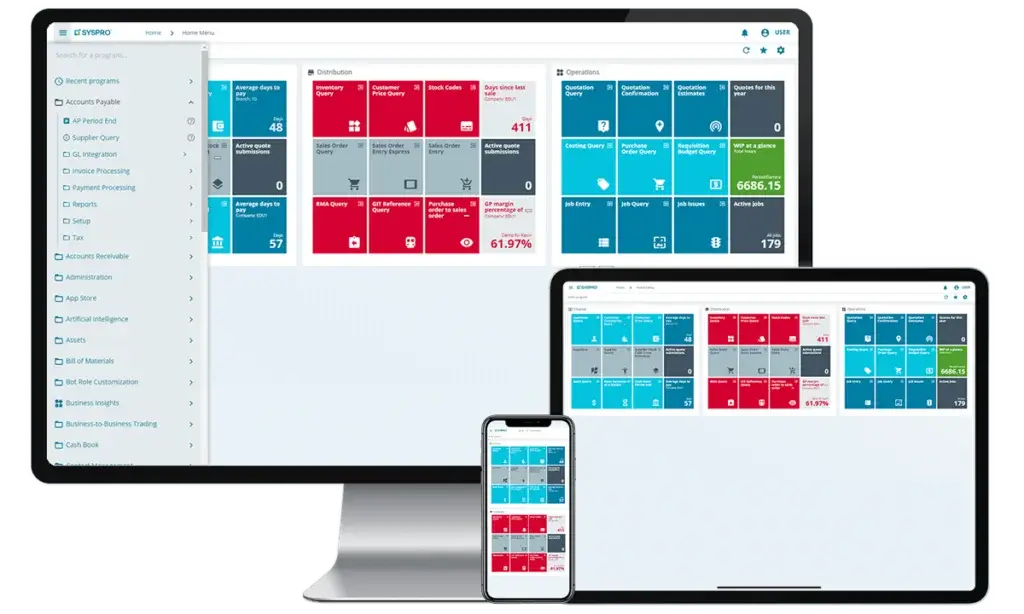 Why we choose: Preferred for its flexible, customizable solutions that excel in inventory optimization and regulatory compliance.
Why we choose: Preferred for its flexible, customizable solutions that excel in inventory optimization and regulatory compliance.
Syspro’s ERP software Philippines includes advanced planning and forecasting tools for efficient production scheduling and resource optimization. It also provides quality control modules to ensure compliance with industry standards through rigorous testing, inspection, and documentation.
Key features:
- The lot and serial tracking
- Inventory optimization
- Quality control and compliance
- Production scheduling
| Pros | Cons |
| Flexible and customizable | Longer implementation time |
| Strong inventory management | The user interface can be outdated |
| Excellent compliance tools | Requires dedicated IT support |
| Good integration capabilities | Occasional system lags with high data loads |
8. Nulogy
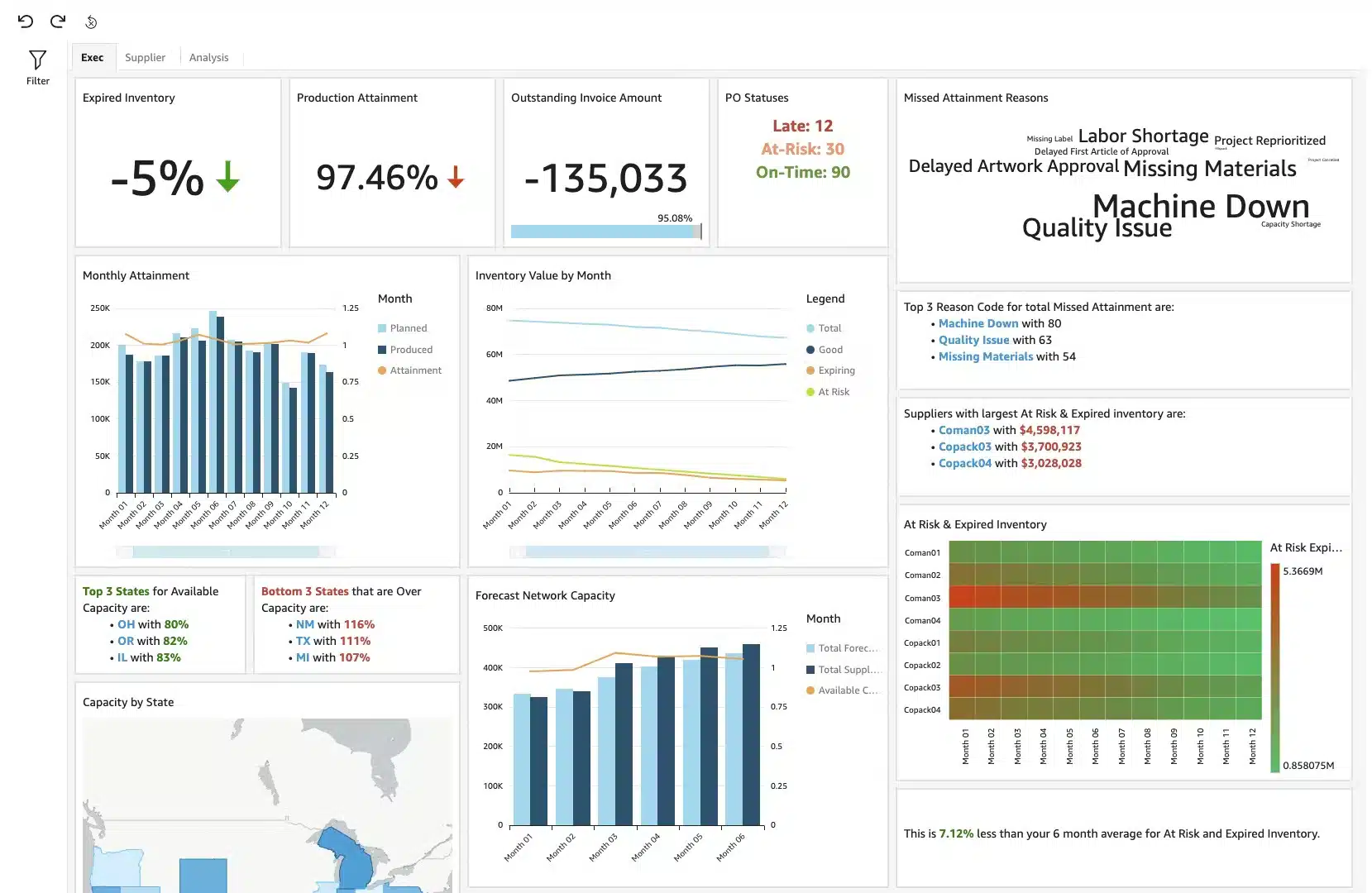 Why we choose: Ideal for its cloud-based platform and real-time supply chain visibility, facilitating seamless collaboration within the pharmaceutical supply chain.
Why we choose: Ideal for its cloud-based platform and real-time supply chain visibility, facilitating seamless collaboration within the pharmaceutical supply chain.
Nulogy’s ERP software enhances supply chain visibility and collaboration by tracking materials, production processes, and shipments in real-time. Its advanced quality control features allow businesses to maintain product integrity through thorough testing and documentation.
Key features:
- Real-time supply chain visibility
- Compliance and quality management
- Inventory tracking
- Collaborative planning tools
| Pros | Cons |
| Cloud-based, accessible anywhere | Limited customization for specific needs |
| Strong supply chain visibility | It can be costly for small businesses |
| Regular software updates | Requires internet access for full functionality |
| Excellent collaborative tools | Limited offline capabilities |
9. Opcenter
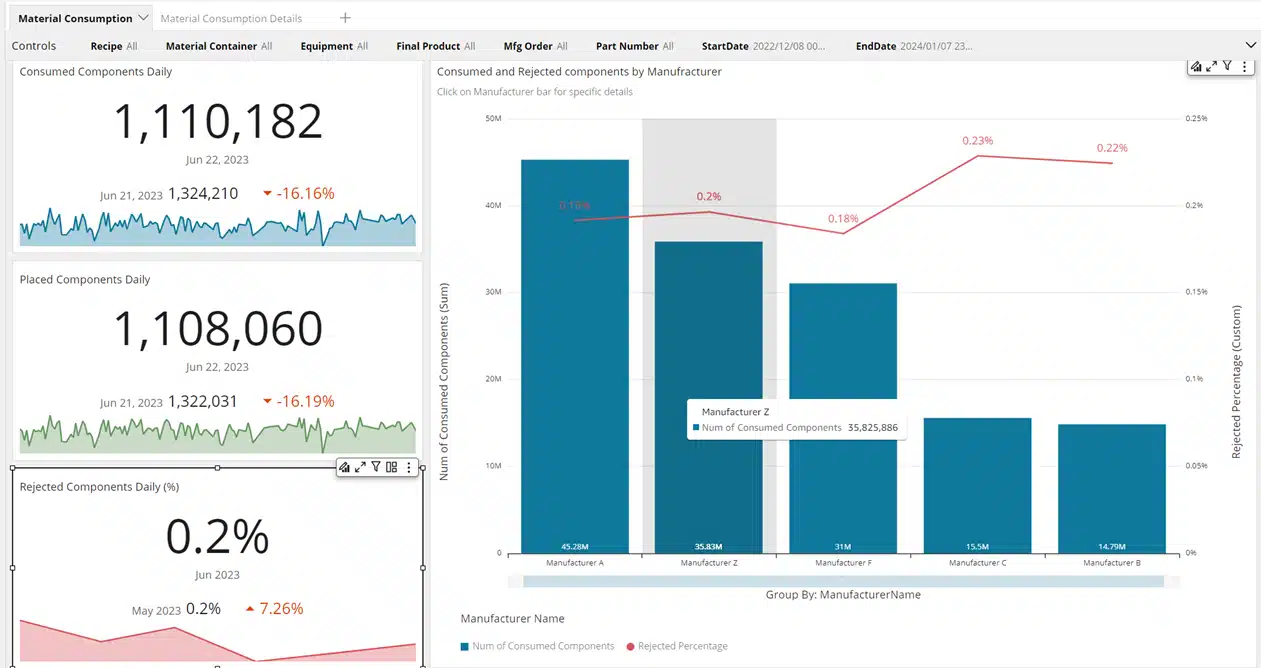 Why we choose: We chose it because of its advanced manufacturing capabilities and comprehensive MES integration, ensuring precise production and quality control.
Why we choose: We chose it because of its advanced manufacturing capabilities and comprehensive MES integration, ensuring precise production and quality control.
Opcenter offers a comprehensive ERP solution that streamlines and optimizes production processes. It provides tools for production planning, scheduling, and resource management, helping businesses increase productivity and reduce lead times.
Key features:
- Comprehensive MES integration
- Advanced quality management
- Real-time production monitoring
- Regulatory compliance features
| Pros | Cons |
| Advanced manufacturing capabilities | Complex system setup |
| Strong MES integration | Requires in-depth training for full use |
| High data accuracy and traceability | Higher cost for advanced features |
| Excellent quality management | Limited to larger-scale companies |
How to Choose ERP for the Pharmaceutical Industry
Selecting the right ERP for the pharmaceutical industry involves considering key factors to meet your business needs effectively:
- Know your needs: Identify your company’s requirements, such as compliance, quality control, or batch tracking, to find an ERP that aligns with your operations.
- Compliance support: Choose an ERP with built-in tools for industry regulations (FDA, GMP) to ensure easy compliance.
- Quality management: Look for software that automates quality checks and manages batch tracking to maintain high standards.
- Scalability: Select an ERP that can grow with your business, avoiding costly future upgrades.
- Data security: To safeguard sensitive information, prioritize an ERP with strong data protection features like encryption and access control.
- Evaluate costs: Consider the full price, including setup, maintenance, and training, to ensure it fits your budget.
Conclusion
In summary, ERP software is essential for optimizing the complex processes involved in pharmaceutical manufacturing. These solutions offer a range of tools tailored to meet the industry’s unique needs, helping businesses comply with regulations, enhance productivity, and manage resources more effectively.
However, choosing the right ERP software can be challenging. To experience a tailored solution firsthand, consider choosing HashMicro ERP software. You can try a free demo to explore its capabilities before deciding. Get in touch today and take the first step toward optimizing your pharmaceutical operations!

FAQ About ERP for Pharmaceutical Industry
-
What does ERP mean in pharmacy?
ERP in pharmacy is software that helps manage different tasks like tracking inventory, managing sales, and handling finances, all in one system to make operations smoother.
-
What type of CRM is used in pharmaceutical industry?
In the pharmaceutical industry, companies use operational and analytical CRM systems. Operational CRM helps manage customer interactions by automating tasks like sales and marketing, making it easier to work with healthcare professionals and pharmacies. Analytical CRM analyzes customer data to understand behavior, track sales trends, and improve marketing. These systems help build strong relationships, manage sales activities, and comply with regulations.
-
What is an ERP system for healthcare?
Healthcare ERP is a comprehensive software solution that integrates and manages various hospital operations, such as patient data, billing, inventory, human resources, and finance, to improve efficiency and streamline department processes.
{
“@context”: “https://schema.org”,
“@type”: “FAQPage”,
“mainEntity”: [{
“@type”: “Question”,
“name”: “What does ERP mean in pharmacy?”,
“acceptedAnswer”: {
“@type”: “Answer”,
“text”: “ERP in pharmacy is software that helps manage different tasks like tracking inventory, managing sales, and handling finances, all in one system to make operations smoother.”
}
},{
“@type”: “Question”,
“name”: “What type of CRM is used in pharmaceutical industry?”,
“acceptedAnswer”: {
“@type”: “Answer”,
“text”: “In the pharmaceutical industry, companies use operational and analytical CRM systems. Operational CRM helps manage customer interactions by automating tasks like sales and marketing, making it easier to work with healthcare professionals and pharmacies. Analytical CRM analyzes customer data to understand behavior, track sales trends, and improve marketing. These systems help build strong relationships, manage sales activities, and comply with regulations.”
}
},{
“@type”: “Question”,
“name”: “What is an ERP system for healthcare?”,
“acceptedAnswer”: {
“@type”: “Answer”,
“text”: “Healthcare ERP is a comprehensive software solution that integrates and manages various hospital operations, such as patient data, billing, inventory, human resources, and finance, to improve efficiency and streamline department processes.”
}
}]
}



































